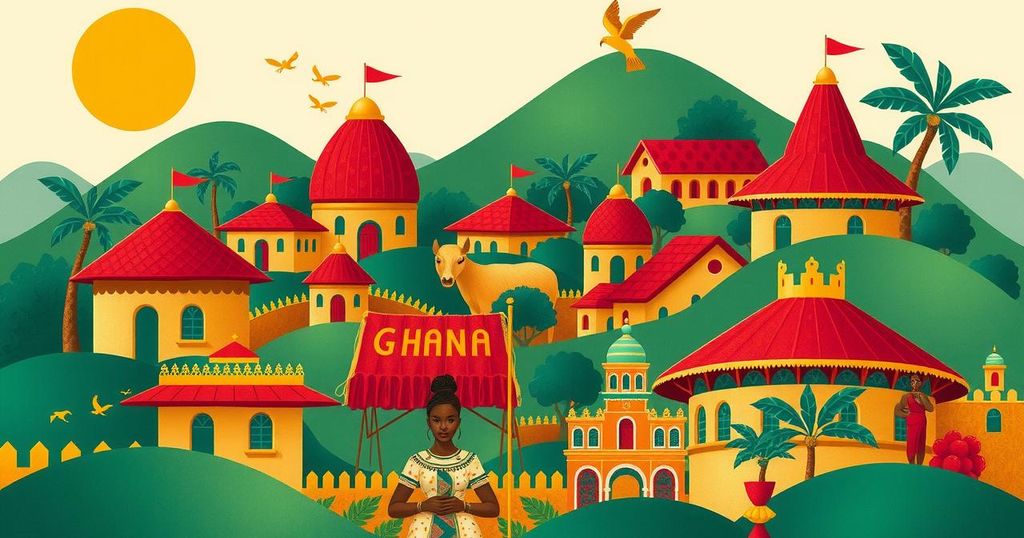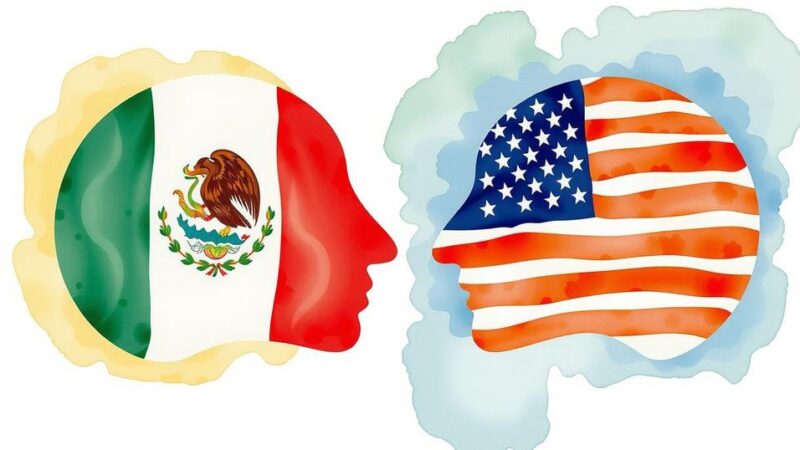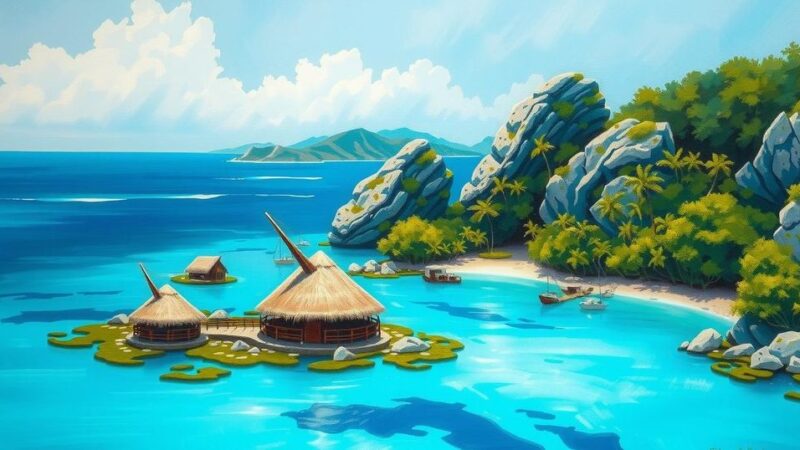Afenyo-Markin asserts that JB Danquah coined the name “Ghana” through research linking the people of the Gold Coast to the ancient Ghana Empire. He argues that Danquah’s efforts influenced the UGCC’s decision to adopt this name at independence in 1957. However, historians, including Yaw Anokye Frimpong, dispute this claim, pointing out that the name existed prior to independence and that Danquah proposed “Akanman” instead.
Alexander Kwamina Afenyo-Markin, the Member of Parliament for Effutu, has claimed that the late Dr. Joseph Boakye Danquah, known as JB Danquah, was instrumental in coining the name “Ghana”. This assertion was made during the commemoration of the 60th anniversary of JB Danquah’s passing on March 9, 2025. Afenyo-Markin contends that through extensive research on the ethnicities in what was then the Gold Coast, Danquah discovered a connection to the ancient Ghana Empire, prompting him to advocate for the name change.
The MP explained that prior to independence, JB Danquah extensively conducted research, reflects the history, identity, and heritage of Gold Coast residents. He invested time in institutions like the British Museum, studying historical sources related to the region’s ethnic groups. Afenyo-Markin emphasized that Danquah believed the name “Ghana” would embody the region’s heritage and foster a shared national identity.
Furthermore, Afenyo-Markin pointed out that the leaders of the United Gold Coast Convention (UGCC), who sought independence, reached a consensus on using the name “Ghana” following the country’s liberation. The UGCC, established in 1947 by figures like Paa Grant and Danquah, collectively decided on this name, which was officially adopted upon independence in 1957.
However, some historians, including Yaw Anokye Frimpong, dispute Afenyo-Markin’s claims. In a JoyNews interview on August 5, 2024, Frimpong asserted that the name “Ghana” was in existence prior to independence. He noted that Ghana’s first President, Dr. Kwame Nkrumah, named an educational institution “Ghana National College” almost a decade before the country achieved independence.
Frimpong further revealed historical records indicating that Danquah had proposed the name “Akanman” for an independent Gold Coast instead of Ghana. He recounted Danquah’s political struggles, including his loss of a constituency seat, and provided evidence of Nkrumah’s educational initiatives predating the country’s independence.
In conclusion, Afenyo-Markin’s assertions regarding JB Danquah’s role in naming Ghana are contested by some historians. While Afenyo-Markin emphasizes Danquah’s contributions, critics underline the existence of the name prior to independence and suggest Danquah preferred a different name altogether for the new nation.
In summary, Afenyo-Markin attributes the name “Ghana” to Dr. Joseph Boakye Danquah’s research and advocacy. While he highlights the scholarly efforts leading up to its adoption, some historians argue against this narrative, asserting that the identity of the name predated independence and that JB Danquah suggested a different name. This discourse reflects ongoing discussions regarding national identity and heritage in Ghana.
Original Source: www.ghanaweb.com






